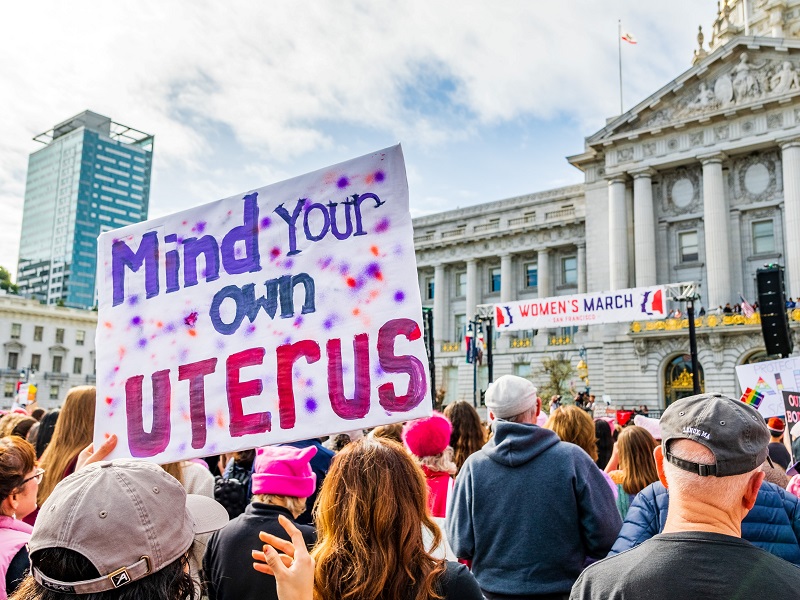
When the U.S. Supreme Court overturned Roe v. Wade, it triggered a flurry of questions — and some confusion — from employers on how they could continue to provide abortion coverage in their health benefits plans while complying with various state laws, says Sarah Raaii, a lawyer and senior associate with McDermott Will & Emery LLP.
Following the leak of the Supreme Court’s draft opinion in Dobbs v. Jackson Women’s Health Organization, a host of companies, including Amazon Inc., Yelp Inc. and Citigroup Inc., announced they’d add coverage for employees travelling out of state to obtain an abortion. But even this option seems to be enough to trigger threats of punitive measures from some lawmakers, says Raii.
Read: U.S. employers enhancing benefits plans with travel coverage for abortion
More than 60 per cent of U.S. employer-sponsored benefits plans are self-funded, many of which were already covering abortion services, she says, noting the fact these plans are covering something that may now be illegal in some states is unsettling for these organizations. Employers with self-funded benefits plans are now questioning whether the Employee Retirement Income Security Act, which these plans fall under, will shield them from litigation if their plans cover or provide abortion services or products.
The ERISA was established in the 1970s to create one set of rules for health benefits offered by employers operating in different states, says James Gelfand, president of the ERISA Industry Committee. “Big companies that operate in every single state and city . . . would have to follow so many different sets of rules that it would be impossible for them to offer the benefits to their employees.”
The Dobbs decision leaves the issue of abortion’s legality up to individual states instead of the federal government, points out Gelfand. However, he notes half of U.S. states have imposed some kind of limitations on abortion services, from the very severe — such as in Oklahoma and Texas, where lawmakers are doing everything they can to prevent abortions, including criminalization of the procedure — to milder limitations, such as a heartbeat law or making abortion legal up to a certain number of weeks.
Read: A quarter of U.S. employers considering expansion of abortion services coverage: survey
“Employers are now faced with the question [of legality] as part of many health plans includes services that are affected by these . . . laws,” says Gelfand, noting in addition to the actual procedure, medications are also potentially affected, as are procedures such as dilatation and curettage for miscarriages, in-vitro fertilization and other fertility treatments, as well as types of birth control that some states consider abortive products.
While the ERISA generally pre-empts state laws, fully insured plans are subject to state insurance laws, which can also include a ban on abortion services, notes Raaii. The ERISA also doesn’t protect employers from “generally applicable criminal law,” she says, explaining some states are imposing criminal penalties for anyone who aids and abets the provision of abortion within their borders.
“If a court determines state abortion restrictions are generally applicable criminal laws, then potentially, ERISA plans can be subject to criminal penalties if they provide abortion services, including travel benefits.”
However, Gelfand believes the question of whether employers covering travel reimbursement for abortions under their benefits plans falls under a generally applicable criminal law is a grey area. He says a state can’t force an ERISA plan to cover a specific medication and, if instead, a state enacts a criminal law that says executives of companies that don’t cover this medication can face prison, that also wouldn’t be considered a generally applicable criminal law.
“That’s subterfuge to pass a benefits mandate by using the criminal code to get around ERISA. So where does the aiding and abetting lie on the scale? I’d say it’s kind of in the middle. It’s not clear yet, which is why we expect there is going to have be litigation to come to an answer to that question . . . which can be a decade-long process.”
Read: Employers facing hurdles covering abortion travel costs
